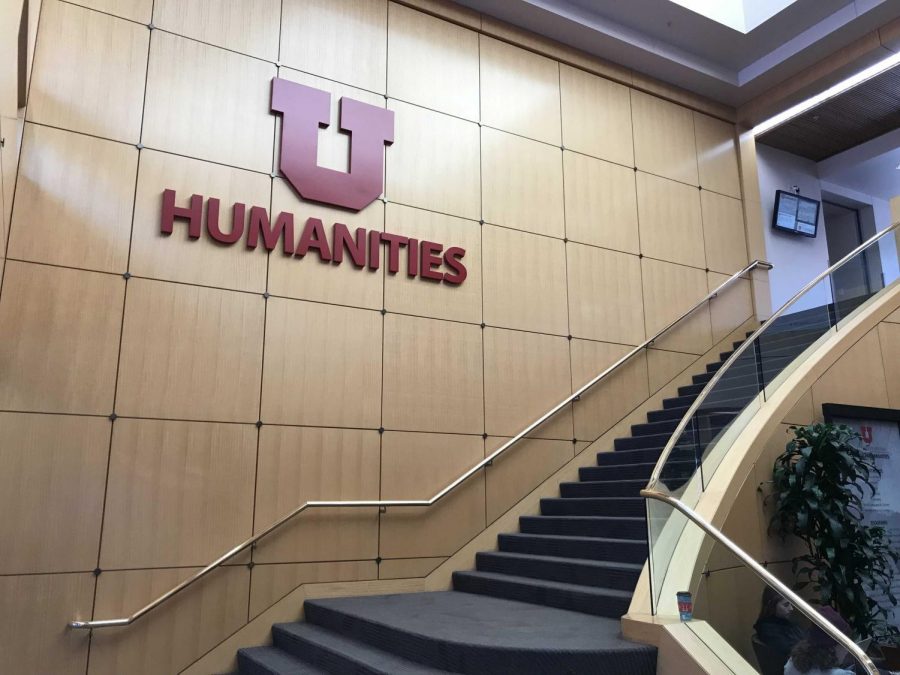National Arts and Humanities Month: the Role of the U Humanities in Dealing with Social Issues
October 23, 2020
October is National Arts and Humanities Month, and the College of Humanities at the University of Utah is celebrating in many ways.
In an Instagram post from Oct. 8, the official U Humanities account said this month is about celebrating the role of the arts and humanities to make lasting change.
“In this turbulent year, the arts and humanities have played a critically important role in getting us through the COVID-19 pandemic and in amplifying the need for racial equity across the country,” the post read.
Stuart K. Culver, the dean of the College of Humanities, sent out an email to humanities students on June 8, 2020, acknowledging the role of the Humanities in grappling with social and political strife. About four months later, Culver thinks the department is heeding his advice well.
“The semester has been going generally pretty well. I think that we’ve noted there are stressful moments for students, both based on the new kinds of learning and technologies,” Culver said.
One way the U Humanities have been integrating modern social issues is through panel discussions at the Tanner Humanities Center, such as the Oct. 15 talk with Ruha Benjamin, a prominent sociologist and author of the book “Race After Technology.”
“The discussion, which was open to students, was about algorithmic bias, the ways in which the technologies we use actually reinforce some aspects of what we could call structural racism. We’re going to carry on that conversation over the course of the year,” Culver said.
These conversations about current events are also happening inside the classroom. One class, Theories and Histories of Rhetoric, looks at modern democracy through the lens of ancient democracy.
LuMing Mao, professor of the class for the first time this year, said he deliberately brought up two Greek concepts when discussing modern democracy — “isegoria” and “parrhesia.”
“Isegoria basically refers to the equal rights of the male free citizens to participate in public debate. In this case, in the assemblies, or public settings… Parrhesia is basically defined as the license to say whatever one wants to say, how to say it, and when to say it, to whom to say it,” Mao said.
Mao wanted to bring these two concepts into the conversation of modern democracy because he believes people tend to conflate one concept with the other when grappling with free speech.
“So I thought it would be fascinating to focus on these two concepts in the context of Ancient Athenian settings, as well as the Roman Republic, to talk about democracy then, and then sort of bring students back to the here and now to talk about democracy, most specifically, freedom of speech,” Mao said.
While this class focuses on ancient times, Mao made sure to consider current events when crafting his syllabus.
“This is a brand new syllabus. However, when I was working on the syllabus this summer, I did take into account our current political climate, as well as the upcoming general election,” Mao said.
Mao said the humanities enable students to think critically about current events.
“In my mind, thinking critically is to think about issues in their own historical context, and more specifically, this historical context is both emerging and emergent. In other words, the historical context constantly shifts. We have to think about the forces that contribute to the shifting nature of this historical context,” Mao said.
Mao also said the humanities foster a collaborative approach to critical thinking.
“Oftentimes, I think, at least when we teach our students to think critically, it is as if students need to think all by themselves. I think that that is a misunderstanding of critical thinking; critical thinking has to be anchored in the context of the other,” Mao said.
Another Humanities course — Communication, Community and Advocacy, taught by Danielle Endres — is new this year and is aimed at enabling students to apply the communication theory and research they have studied to modern community issues.
“The students are asked to create an advocacy stance based on a community issue that they pick and using communication theory too. We’re doing a lot of different case studies of community issues that we’re currently facing,” Endres said.
The students have picked a variety of issues including homelessness in Utah, immigration, air quality and racial injustice.
Endres approached the director of undergraduate studies in the department with the idea for this class out of a desire to let communications students apply the theory and research they learn in the classroom to issues that are happening right now.
“I pitched the idea to her as a way to think about the direct connection that communication, research and theory can have to ongoing social, political, cultural issues, not just in Utah, even things on campus,” Endres said.
Endres said she is introducing certain case studies into the class, with topics ranging from the Utes nickname to police brutality. She believes the humanities are essential in understanding modern social issues.
“One of the things that I think the humanities does really well is tell us that all of these issues that we’re facing right now are tied in with histories and larger structures of oppression and marginalization,” Endres said.








